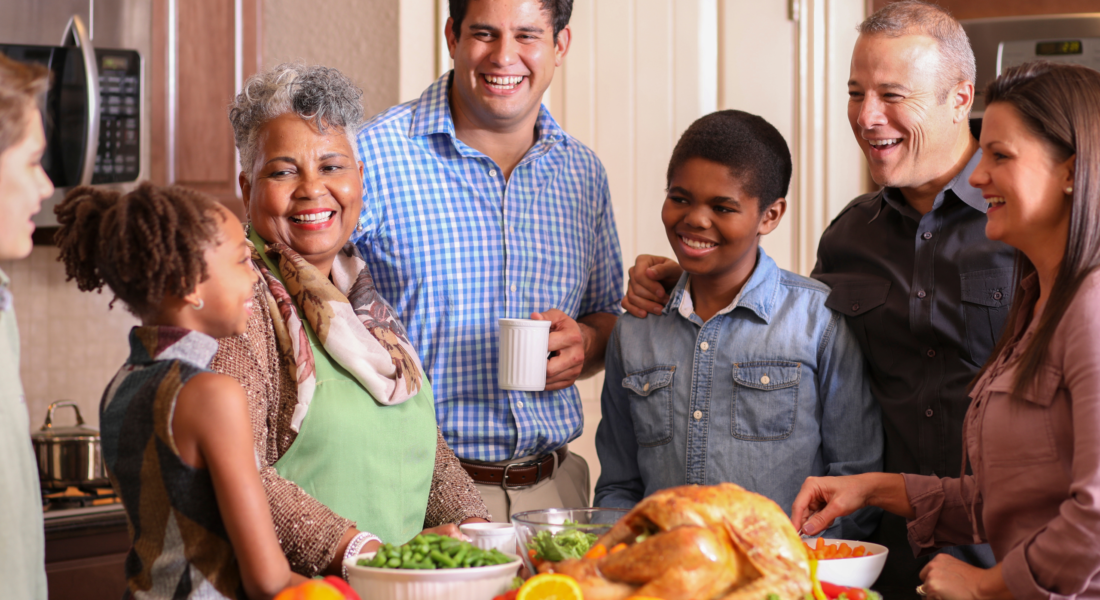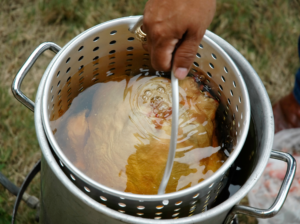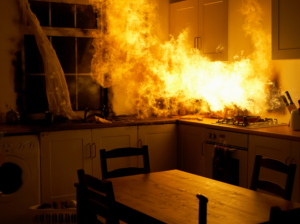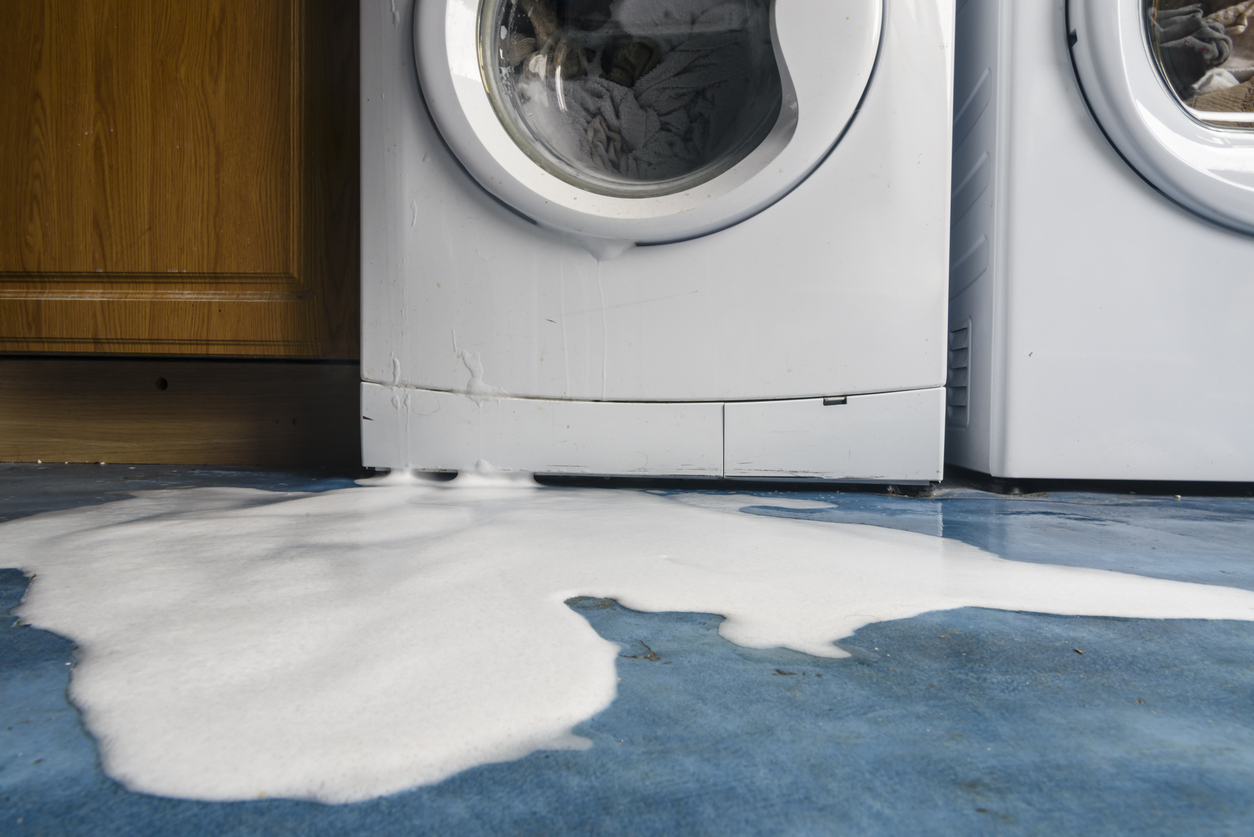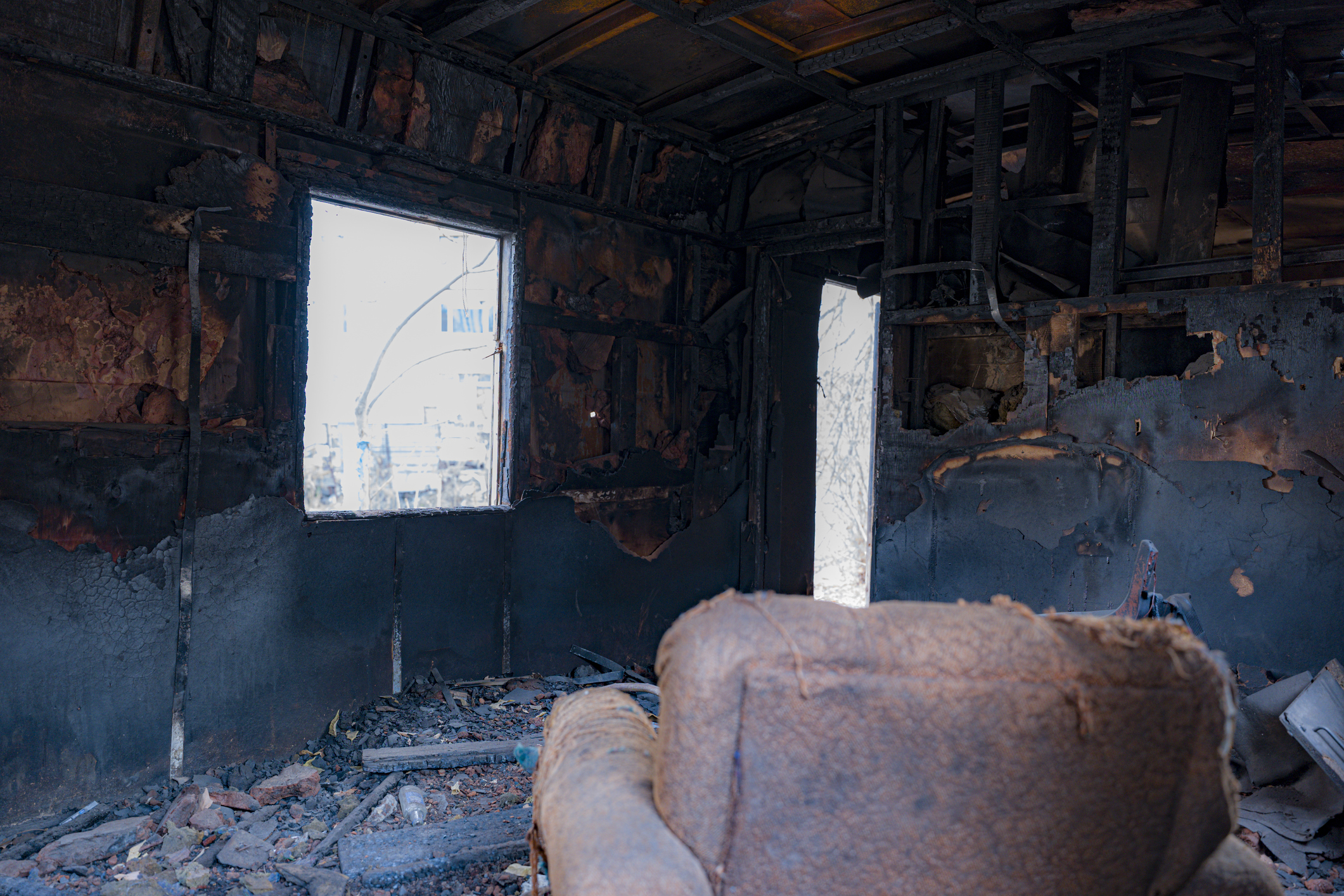Thanksgiving is a time for family, gratitude, and delicious feasts. However, it’s also a day when kitchens across the nation see an uptick in fire-related incidents. According to the National Fire Protection Association (NFPA), Thanksgiving is the peak day for home cooking fires, with unattended cooking being the leading cause.
By taking some simple precautions, you can enjoy your holiday safely and keep your kitchen free from flames.
Common Causes of Kitchen Fires on Thanksgiving
First, let’s understand the most common causes of kitchen fires:
- Unattended Cooking: Leaving food on the stove or in the oven without supervision can lead to overheating and fires.
- Grease Fires: Overheated oil or grease can ignite, especially when frying.
- Cluttered Cooking Areas: Towels, pot holders, and other flammable items near heat sources can catch fire.
- Improper Use of Deep Fryers: Frying a turkey without proper equipment or safety measures significantly increases fire risks.
Pro Tip: While kitchen fire damage from increased cooking is more common during the holiday season, water damage in the kitchen still poses a threat.
Learn to spot common signs of kitchen water damage here: The 4 Most Common Causes of Water Damage in Your Kitchen
Key Safety Practices
Here are some essential safety tips to keep your kitchen safe this Thanksgiving:
1. Stay Alert and Focused
- Always remain in the kitchen while cooking. If you must leave, turn off burners or set a timer to remind you to return.
- Avoid distractions such as phone calls, texting, or excessive alcohol consumption while cooking.
2. Maintain a Clean and Organized Kitchen
- Keep cooking surfaces free of grease, food debris, and clutter.
- Store flammable items like paper towels, oven mitts, and utensils away from heat sources.
3. Practice Safe Turkey Frying
- Use Outdoors Only: Always operate a turkey fryer outside, on level ground, and away from structures, trees, and flammable materials.
- Ensure the Turkey is Dry: Thaw the turkey completely and pat it dry to avoid oil splatter and flare-ups.
- Monitor Oil Temperature: Use a thermometer to ensure the oil doesn’t overheat. Keep it at 350 degrees F (175 degrees C). Never leave the fryer unattended.
4. Prevent Grease Fires
- Heat oil slowly and use a deep pan to prevent splashes.
- If a grease fire occurs, never use water to extinguish it. Smother the fire with a lid or use baking soda. A Class B or multipurpose fire extinguisher is ideal.
5. Use the Oven and Stove Safely
- Check the oven before preheating to ensure no flammable materials are inside.
- Turn pot handles inward to prevent accidental spills.
- Use a timer to avoid forgetting items in the oven.
6. Equip Your Kitchen for Safety
- Install smoke alarms in and near the kitchen, and test them regularly.
- Keep a fire extinguisher within easy reach and know how to use it.
Pro Tip: Have a detailed escape plan ready in case of a large fire. Make sure your family understands the plan. Seasonal practice drills are recommended.
Want more info on what to do after a house fire? Read our article: What to Do After Enduring a House Fire
What to Do in Case of a Fire
For small fires, use a lid, baking soda, or a fire extinguisher to smother flames. If the fire grows, evacuate immediately, close the kitchen door to contain the fire, and call 911.
By following these safety practices, you can enjoy a delicious Thanksgiving feast without the risk of a kitchen disaster. Remember, the fire and smoke damage restoration experts at 24 Hour Flood Pros are ready to help you recover from any unfortunate incidents this holiday season.
A little preparation and vigilance can go a long way in ensuring your holiday is safe and stress-free.

